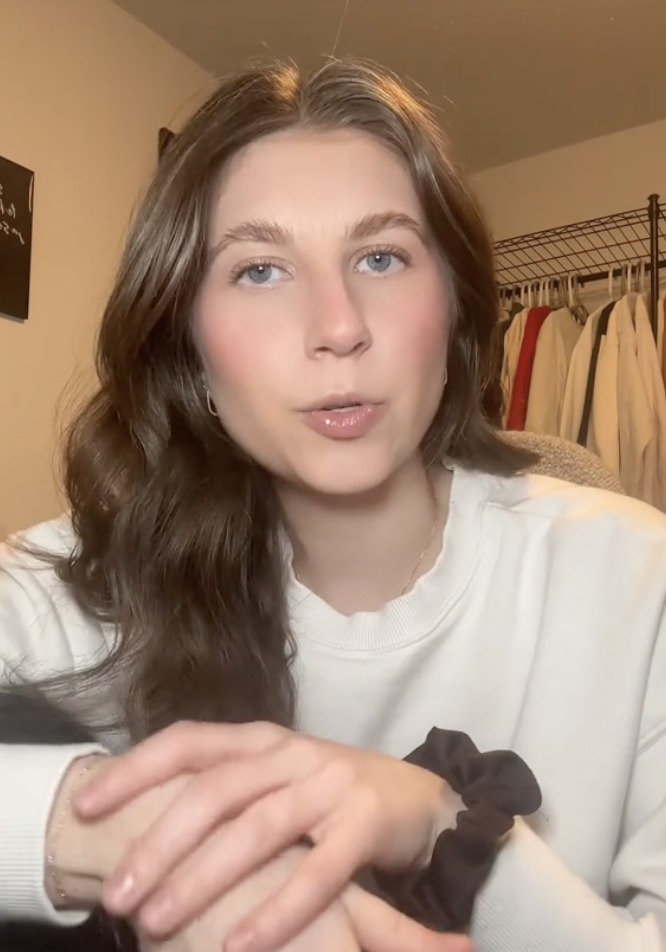Over the past few years, tipping culture has expanded beyond its traditional realms, making its way into unexpected corners of the service industry.
TikToker Ina Josipović recently shared her bewildering experience of being asked for a tip after buying a wedding dress, sparking a broader conversation about the evolving landscape of tipping practices.
In her TikTok video, Josipović recounted her recent visit to a bridal store where, after successfully finding the perfect wedding dress and pulling out her card to pay, she was surprised when the employees flipped an iPad around, expecting a tip.
Expressing her shock, she mentioned, “I stood there and I think they saw the blood leave my body. I did not expect to have to tip buying a wedding dress.”

The store was nearly empty – only Josipović, her friend, and three staff members were present — but she wondered why she needed to tip at all in such a context. The unexpected request took her aback, and left her questioning whether she should add a tip to an already expensive wedding dress.
“So I just kind of stood there. And luckily, I speak a different language, and my best friend bought a wedding dress at a different store sometime last year, so in a different language I looked at her and I said, ‘Hey, did you tip when you bought your wedding dress?’ And she was like, ‘No’. And then I was like, ‘Did they ask you to tip?’ And she said no,” Josipović said.
“So I’m just standing there trying to do the math in my head because the dress is already expensive, right. And then a 10% tip on a $1,500, $2,000 dress is like another $200. And if the dress is even more, you’re paying a couple $100,” she continued, adding: “Which I guess if you can afford a $10,000 dress, maybe a tip isn’t that big of a problem. But most people really can’t, right?”
The bride-to-be then recalled how she felt embarrassed adding a smaller tip, saying: “Anyway, I just stood there. And so I was like, okay, I’m not going to tip a couple $100 because that’s a lot […] So then I’m doing the math and I’m like, maybe I’ll just press custom and just do like a $50 tip which I think ends up being like 1.5% which is almost embarrassing.
“But if you guys think your stylist deserves a tip, why don’t you just give her commission instead of asking me to tip? […] I don’t know, maybe I’m being weird but I just don’t feel like that was a service that… I guess she brought dresses out to me but I did that when I worked at stores. I just got commission off selling clothes to people, it wasn’t… Nobody was tipping me at a retail store. I don’t know. Tipping is kind of weird lately,” she said.

Josipović’s experience only seems to open up a larger discussion about tipping culture, which is different across the world. Generally, it’s considered to be a reward for exceptional service, but in the USA it’s seen as an essential part of compensation for low-wage workers.
The TikTok video resonated with viewers, leading them to chime in with their own opinions on the growing reach of tipping expectations. This discussion touched upon how tipping has simply become the norm in America and has seemed to creep into industries where it was traditionally absent.
People have argued that tipping should be saved for services where workers have low wages, and therefore need additional compensation. However, the trend of tipping in places where it’s usually not required raises questions about the appropriateness of such practices and the potential financial burden on customers.
What do you think about this? Let us know in the comments!






